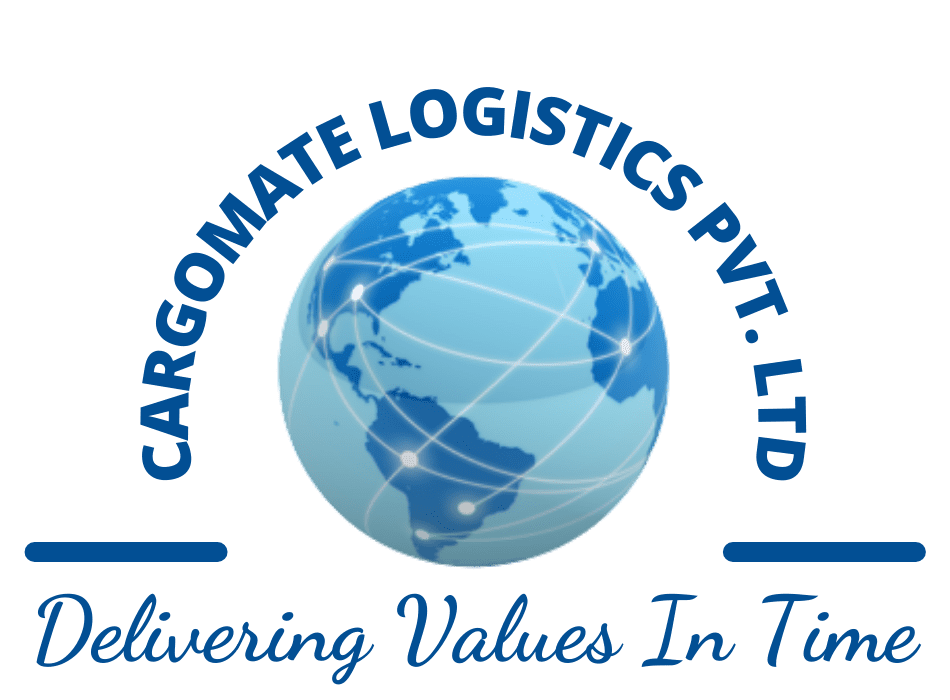Complete Guide to Project Cargo Shipping Services, Customs Clearance & Freight Forwarding
Project Cargo Shipping Services takes specialized planning and management of large or complex shipment transports as part of major industrial projects; these shipments are not regular. They typically involve heavy cargo and contain oversized equipment and/or machinery that require specialized transport and load planning, precise coordination, and scheduling. For most shipping companies that collaborate with customers to ship project cargo, project cargo involves items utilized for mining, construction, energy, infrastructure, and many other industries, such as wind towers, oil rig parts, heavy equipment, and industrial parts that are too large for standard shipping containers, and so on.
It’s too hard to put a freight plan together; clients are searching for logistics experts and logistics providers with the experience to build a custom logistics, transportation, and shipping plan for the exact shipment they are requesting. Intelligent logistics routing, and a global network of logistical partners, plus local support staff, considering the most critical problems in ship logistics, including sealing sensitive logistics requirements, where the transportation is in difficult terrain or customs situations, among other specifics.
A dependable Freight Forwarding Services provider, such as ecomstree, takes personalized attention for every shipment. They typically involve heavy cargo and contain oversized equipment and/or machinery that require specialized transport and load planning, precise coordination, and scheduling. For most shipping companies that collaborate with customers to ship project cargo, project cargo involves items utilized for mining, construction, energy, infrastructure, and many other industries, such as wind towers, oil rig parts, heavy equipment, and industrial parts that are too large for standard shipping containers, and so on.
It’s too hard to put a freight plan together; clients are searching for logistics experts and logistics providers with the experience to build a custom logistics, transportation, and shipping plan for the exact shipment they are requesting. Intelligent logistics routing, and a global network of logistical partners, plus local support staff, considering the most critical problems in ship logistics, including sealing sensitive logistics requirements, where the transportation is in difficult terrain or customs situations, among other specifics.
Key Challenges in Project Cargo Management
Managing project cargo, whether oversized, high-dollar, or non-standard, adds logistics complexity. These project shipments often have multiple participants, timetable restrictions, and compliance challenges. Below are some of the significant problems that businesses encounter while moving project cargo:
1. Planning and Coordination Complexity
Compared to standard shipping, Project Cargo Shipping Services require significantly more preparation and collaboration. Shippers, carriers, port employees, customs officers, and project managers must all be in agreement for the process to function smoothly. Any setback might cause a snag in the process, affecting all subsequent actions and ultimately delaying the project’s completion.
Solution: A thorough planning phase is necessary before shipment to ensure successful cargo movement. Project Managers have the logistics capabilities, utilize advanced tools, and clearly defined, scheduled timelines to minimize disruptions by creating contingency plans and buffer zones.
2. Risk Management and Cost Control
Project cargo is vulnerable to a variety of risks, including physical damage in transit, unforeseen delays, and even rerouting. You may also face additional costs, such as demurrage or last-minute changes, that would be as detrimental to profitability as they would be to a make-good to a client for delivery delays.
Solution: Many reputable Freight Forwarding Service providers provide dedicated cargo insurance for higher-value shipments or even non-standard cargo insurance for non-standard shipments. A quality logistics partner will also arrange alternative transport routes and establish emergency plans during the early planning phase to account for unexpected challenges and protect cargo.
3. Equipment limitations and infrastructure constraints
Depending on the type and weight of the oversized or heavy-lift cargo, moving project cargo may require specialized equipment, such as cranes, flat-rack containers, and heavy-lift vessels. And since heavy-lift cargo is generally expensive, large, and heavy, it goes without saying that forethought and planning are warranted.
Sometimes, heavy-lift cargo must be handled by specialized heavy-lift equipment in the port, or it must occupy a designated heavy-lift space aboard the ship. Based on that fact, the booking of a job should consider such requirements. Just as every port and road, and rail network can handle heavy-lift cargo, these are all indicative of delays due either to the non-consideration of heavy-lift or oversized cargo in the planning process or the move sequence itself.
Solution: Consider partnering with a logistics supplier that has significant global capabilities, along with local representation expertise. Having a supplier like ecomstreet that can provide adjustable and competitive end-to-end Freight Forwarding Services, and has the experience of being a Customs Clearance Agent, can develop additional plans or options when typical infrastructures do not work. Their breadth of access to equipment and port handling will ensure that time lost is minimal, allowing the task to be performed efficiently.
Best Practice Advice
To successfully coordinate the logistical transport of oversized cargo or cargo with a high risk aspect, and do so professionally and on time, you must employ best practices. Project cargo logistics are complicated. However, with proper planning, reliable partners, and suitable tools, these challenges can be managed effectively.
1. Plan with Pre-Shipment Checks & Site Surveys
The basis of a sound planning process is a thorough site survey. This should include an investigation of all roads and bridges for their load capacities; the port’s ability and equipment to move, load, and unload cargo at the origin, transit, and destination; and an examination of any issues that may hinder the successful transport of the cargo, such as low-clearance routes. Doing any of this well in advance of the shipment date will allow one to avoid and/or preclude costly delays.
Understanding national and international regulations is crucial when transporting large items. To ensure a seamless shipping experience, especially when crossing borders, it is crucial to obtain the necessary permits and documentation.
To prevent stuck cargo due to oversized shipments at port customs, an authorized Customs Clearance Agent will expedite the shipment to ensure total compliance with trade requirements.
2. Picking the Right Project Cargo Shipping Partner
The proper logistics partner for the transportation of oversized or non-standard cargo requires knowledge of project cargo logistics, possessing experience in project cargo with a diverse set of equipment (heavy-lift cranes, multi-axle trailers) to coordinate the transportation of different kinds to ensure your cargo arrives at its destination safely and on time.
Ecomstreet goes beyond providing merely transportation services. Ecomstreet utilizes strategic planning, coordination in local ports, and risk management to minimize disruptions and keep you on time, helping you in all aspects of transportation.
3. Keep Communication Channels Open
Due to the need for numerous moving parts and parties involved in project cargo, it’s essential to understand each party’s role; effective communication is key. Project coordinators should schedule periodic check-in & coordination calls to ensure that everyone knows their role, the cargo is on the proper schedule, and to mitigate any potential issues.
Additionally, any real-time tracking method is also helpful. You can constantly track the location of your cargo and be aware of potential delays before they become a bigger issue. Implementing a real-time status method will create more visibility opportunities within the supply chain. Instead of being surprised at the last minute, you will have a chance to address an issue when it arises.
4. Use Smart Tech
Using standardized technology – including GPS and Internet of Things (IoT) sensors during transportation and cargo condition monitoring (temperature, vibration, etc.) – enables you to track sensitive cargo, any time during the trip, and you can either correct course if something goes wrong, or at least be proactive in your response.
There are also advanced logistics tools, such as shipment and route simulation or digital twins, which allow you to model scenarios before commencing the managed services. These tools allow you to manage resources and create scenarios at any time before service timing.
Digitizing your key paperwork, such as customs, compliance, and permit applications, can also help mitigate lost files and speed up the turnaround for Freight Forwarding Services in the trade lane.
Apply the best practices of careful planning, engaging experienced providers like ecomstreet, remaining open to communication, and using current technology. You can optimize your project cargo shipping and ultimately ship critical assets for construction, energy, infrastructure, and other sectors in a quicker, safer, and less expensive manner.
Conclusion
Apply the best practices of careful planning, engaging experienced providers like Cargomate Logistics, remaining open to communication, and using current technology. You can optimize your project cargo shipping and ultimately ship critical assets for construction, energy, infrastructure, and other sectors in a quicker, safer, and less expensive manner.



Leave a Reply